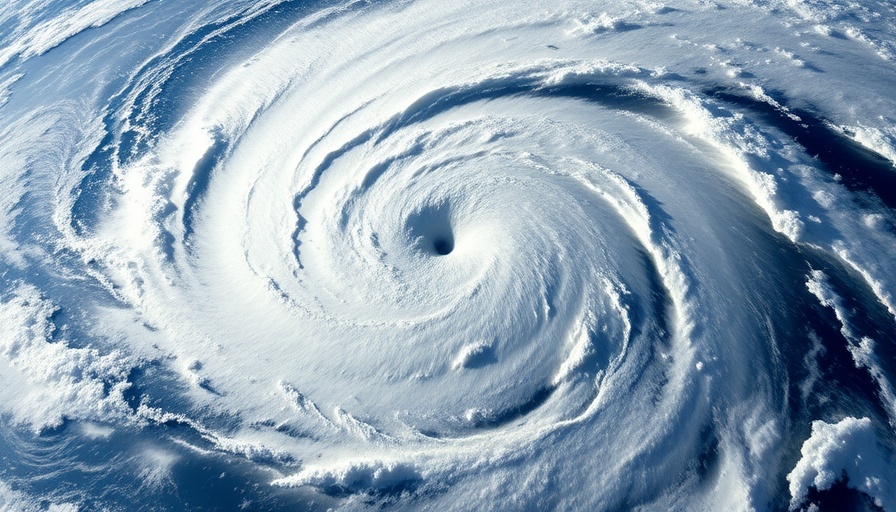
Understanding the 2025 Hurricane Season
The commencement of the 2025 Atlantic hurricane season has been signaled by Tropical Storm Andrea—its arrival just a day ago brings early reminders to communities at risk. According to forecasts from NOAA, this season is expected to be more active, pushing us to take precautions sooner than later. The season officially spans from June 1 to November 30, with storm frequency peaking from August to October, which means it's imperative for those along the U.S. coasts to stay prepared and informed.
Lessons from Past Storms
Reflecting on the 2024 hurricane season helps underscore the importance of readiness. Last year, Tampa Bay faced Hurricane Helene, which prompted massive evacuations and resulted in widespread power outages. These events underline how unpredictable and dangerous hurricanes can be, accentuating the need for proactive measures. Additionally, the impact of Hurricane Milton—who reached a rare Category 5 status—illustrated how even a brief storm can inflict long-lasting damage.
What to Expect in 2025
As highlighted by NOAA, the upcoming season predicts more favorable conditions for stronger storms across both coastal regions. Enhanced tropical activity can impact not only the safety of our coastal environments but also the tourism and boating industries. With increased storm challenges, understanding how to navigate these waters—figuratively and literally—will be crucial for anyone planning their summer outings along the coast.
Essential Preparations for Boaters
Preparation is vital in ensuring the safety and well-being of residents and visitors. If you're a boater or simply enjoy spending time at sea, consider implementing the following tips to keep yourself and your equipment safe during a storm:
- Continuously monitor local weather updates through NOAA and local alert systems.
- Remain flexible with your travel plans should unfavorable weather arise.
- Download emergency alert applications to stay informed during your trip.
- Have reliable contact information readily available for your captain and emergency services.
- Adhere to travel advisories and evacuation orders.
Building Your Hurricane Preparedness Kit
Consider creating an emergency kit to withstand potential power outages or evacuations. This kit should include:
- Flashlights and sufficient batteries
- First-aid supplies for any injuries
- Water—approximately one gallon per person daily for 3-7 days
- Non-perishable food to sustain your household
- Important documents sealed in a waterproof case
These supplies, while simple, can be the difference between safety and chaos during a major storm.
Staying Informed During Unpredictable Times
The unpredictability of the weather can lead to anxiety, especially for those whose lives or businesses hinge on weather conditions. However, preparing can transform this anxiety into a proactive and empowered response. Boatsetter assures users of protection through the Boatsetter Promise, which includes coverage for storms and government-issued weather advisories, providing further peace of mind when planning water-bound activities.
This season, as we gear up for potential storms, let’s keep one another informed and safe. Whether you’re a seasoned boater or planning a weekend getaway, the foundation of safety lies in preparation and awareness. Let's embrace the summer ahead and tackle this hurricane season with confidence!
 Add Row
Add Row  Add
Add 




Write A Comment